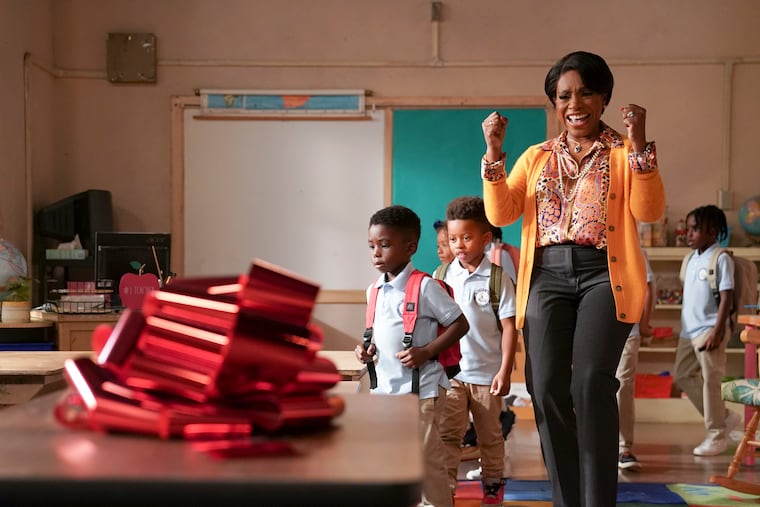‘Abbott Elementary’ accurately portrays life in Philadelphia schools
Despite everything stacked against them, Philly teachers show up for the kids, again and again, with a smile and a sense of humor.

Abbott Elementary, the hilarious show that highlights the day-to-day struggles and triumphs of teaching in Philadelphia, kicks off Season Three on Wednesday. Like thousands of other fans, I am eagerly awaiting its return.
Although Willard R. Abbott Elementary is a fictional school, there is a lot of truth in its portrayal.
From 2010 to 2015, I was employed as an instructional coach for a literacy nonprofit, traveling to elementary schools across Philadelphia. Many neighborhoods were riddled with drugs, crime, and poverty, like Kensington, where dealers hid their goods in the wheel wells of parked cars.
“This is exactly what it looks like,” I told my teenage children as we watched the pilot together. The set was virtually identical to what I remembered: the blue and khaki uniforms, the large metal entrance doors, the murals painted outside. Even the characters reminded me of educators I had known. Ms. K, the bubbly rookie, was like Janine, played by Quinta Brunson (who recently won an Emmy for best comedy actress, the second Black actress ever to receive the award, and the first in 43 years). Ms. C, the streetwise, South Philly native I met who liked Babar books, drew parallels to Melissa Schemmenti.
My role was to support the teachers with literacy instruction, modeling and planning lessons, observing, and providing feedback. Nervous, I wondered if they’d welcome me into their classrooms. Would my coaching really make a difference?
My first assignment was with Ms. J, a veteran third-grade teacher, who kept her students in a perfect “single file” line, like Barbara Howard. As I sat in a conference room waiting for her to arrive, I silently rehearsed my coaching lingo: “I am here to support, not evaluate.” “Let’s partner together to help the students succeed …”
Ms. J was petite, well-dressed, and at least 10 years older than me. This only added to my insecurity, as she clearly had more years of experience. But as soon as we started talking, we clicked instantly.
“I was so nervous before that my palms were sweating,” she confessed later. “But I didn’t need to be,” she added, smiling. “I’m excited to learn something new.”
Over five years, I worked in dozens of buildings across Philly, with multiple teachers. And the majority of them did welcome me. Like Ms. J, they hoped to “learn something new,” or at least refine their instruction. They were even willing to relinquish their precious planning time to meet with me, all in the interest of helping their students.
In many schools, the staff scrambled to get what they needed. In one classroom, we rifled through dusty, falling-apart textbooks, many with ancient copyright dates. In another, we sorted through decades of outdated materials, filling the rolling gray trash cans to the brim.
Just like on Abbott, these teachers faced less-than-desirable conditions: old carpets (or none at all), peeling paint, dingy bathrooms, flickering lightbulbs. Maybe that’s why I loved the episode where Melissa found a creative (albeit illegal) method to procure classroom rugs: “I’ve got a guy for that.”
In reality, Philly teachers deal with similar situations all the time. The majority of the buildings were built prior to 1978, and at least five schools closed due to asbestos in 2023. The district reimburses teachers $200 per year to stock their classrooms, yet educators still lack supplies. I have heard of teachers forking over upwards of $500 to cover their needs.
Perhaps what’s most similar between the Philly teachers and the ones on the show is that they all care deeply about their students. Despite everything stacked against them, they show up for the kids, again and again, with a smile and a sense of humor.
As Barbara states in Season 2, Episode 20: “But if you come back here tomorrow, ready to do your job, having not given up on yourself or that student … well, that is not a failure. Sometimes, that’s what success looks like.”
Lucky for us, Janine and the rest of the cast will be back.
Lisa Mazinas is an elementary reading specialist who writes from Ardmore. Her work has also appeared in Shondaland, HuffPost, Education Week, the Miami Herald, and elsewhere.